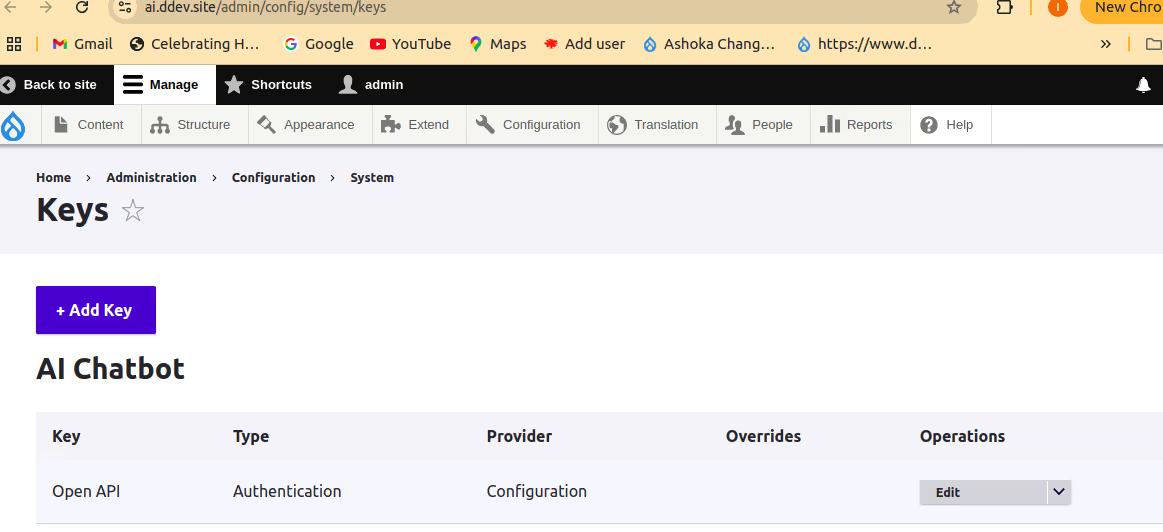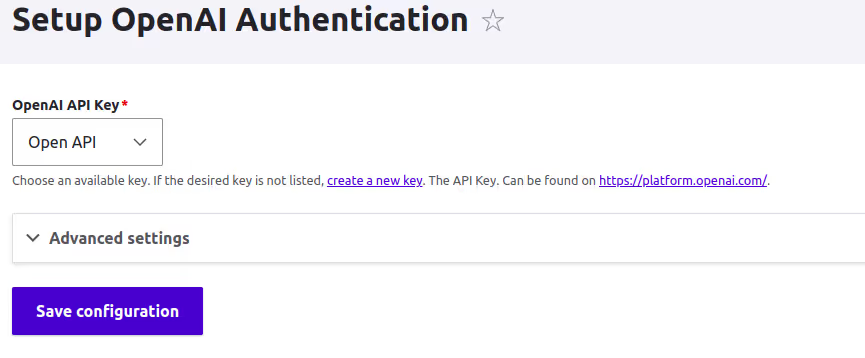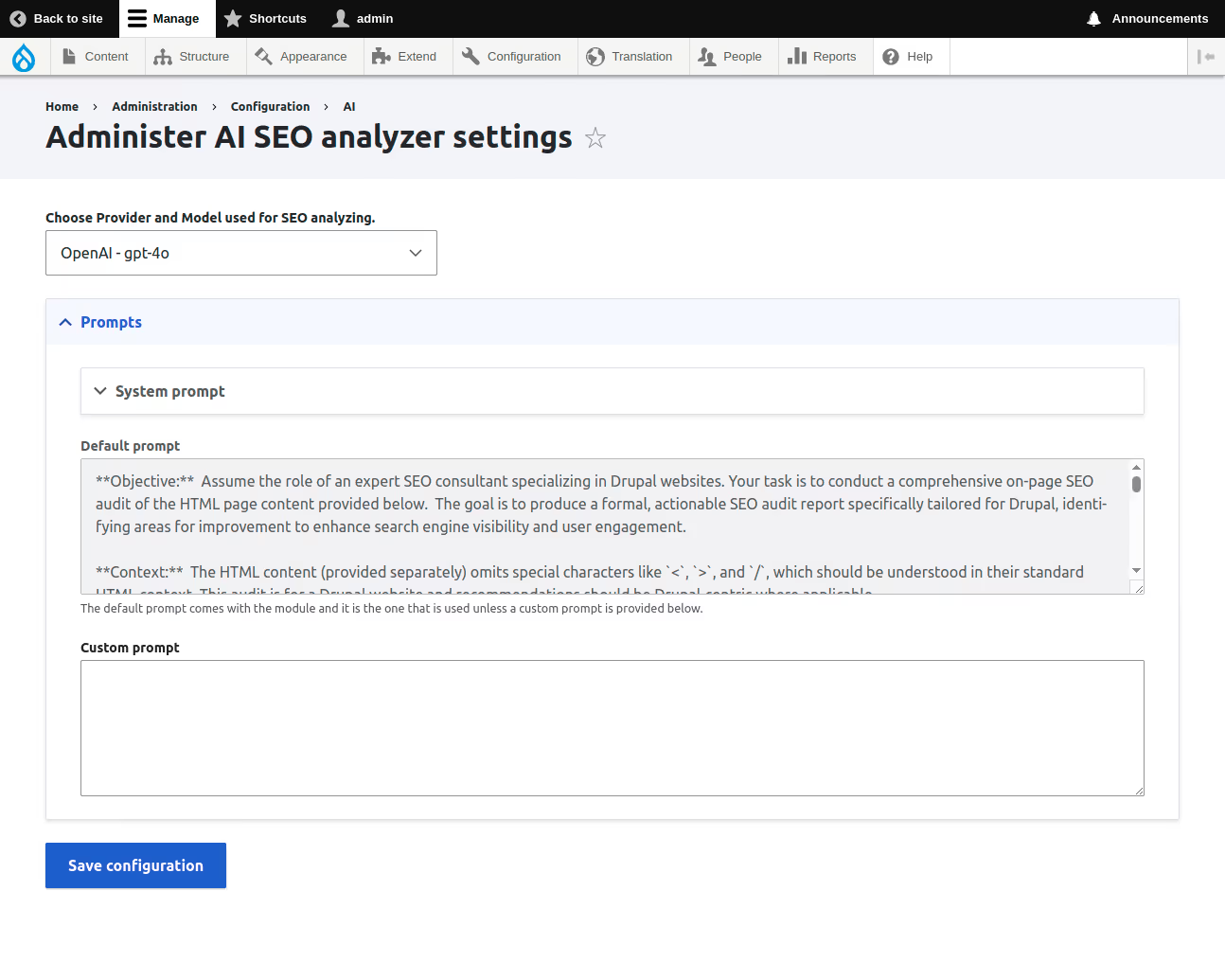In today's digital landscape, Search Engine Optimisation (SEO) plays a vital role in ensuring online visibility. Whether you're a small business or a large enterprise, SEO directly influences how easily users can find your content. With AI (Artificial Intelligence) transforming industries, automating SEO processes in platforms like Drupal can significantly improve efficiency and results.
Drupal, a powerful content management system (CMS), offers flexibility and scalability for building websites. When paired with AI tools, Drupal can streamline and automate many aspects of SEO, making it easier for website owners and administrators to optimise their sites without requiring extensive manual intervention.
In this blog, we will explore how AI can be utilised to automate SEO in Drupal, as well as the tools and techniques that can help you achieve better search rankings.
Why automate SEO?
Before diving into the specifics of AI, it's important to understand why automating SEO is essential. SEO is a multifaceted and time-consuming process that requires constant attention. From keyword research to content optimisation, backlink management, and technical SEO, there’s a lot to manage. Here’s why automation is crucial:
- Efficiency: SEO requires consistent effort. Automation saves time and ensures tasks are done correctly and on time.
- Data-driven insights: AI can process vast amounts of data and deliver actionable insights that can inform your SEO strategy.
- Consistency: AI tools provide consistency across your entire website. Once set up, they ensure that your content and technical SEO elements are always optimized without needing constant adjustments.
- Stay competitive: Search engine algorithms are constantly evolving. AI can help keep you ahead of these changes by adapting your SEO strategy based on up-to-date trends.
Introducing the AI SEO Drupal module
The AI SEO module is a contributed Drupal module that leverages AI services (e.g., OpenAI) to automate and assist with SEO tasks. It’s part of the broader AI Core ecosystem and integrates with your content types to generate:
- Meta titles and descriptions
- Alt text for images
- Keyword suggestions
- Semantic improvements
Whether you're publishing articles, landing pages, or product descriptions, this module can help ensure that your content meets SEO best practices without extra manual effort.
Key features of the AI SEO module
1. Content analysis & suggestions
When you edit content, AI SEO analyzes your text and suggests improvements like better keyword use, clearer headlines, or restructuring paragraphs for SEO effectiveness.
2. Meta tag generation
The module generates contextually relevant:
- Meta titles (to improve CTR on search engines)
- Meta descriptions (to summarise page content)
This helps editors focus on writing content while AI handles the technical SEO layers.
3. Image Alt text generation
AI reads your images (file names and optionally visual description via prompts) and generates meaningful alt text, which improves accessibility and helps search engines index image content.
4. Keyword suggestions
Using Natural Language Processing (NLP), AI SEO identifies important keywords from the content and recommends additional terms that could boost search relevance.
5. Bulk optimization via Drush
AI SEO provides a Drush command for optimizing multiple nodes at once, making it perfect for retrofitting existing content.
How to use the AI SEO module in Drupal
1. Install required modules
You'll need:
- AI Core
- AI SEO
- AI Provider (e.g., OpenAI)
2. Configure API access
- Go to: /admin/config/system/keys
- Paste your OpenAI API key (or other supported providers)

- "Select the OpenAI key from the AI Providers dropdown at /admin/config/ai/providers/openai."

- Save the OpenAI key
- Go to: ‘/admin/config/ai/seo’
- Choose the Provider and Model used for SEO analysis.
- Configure the SEO prompt

3. How the AI SEO module works
When editing a content node, the module provides an "Analyse SEO" tab on the sidebar or as a local task tab. This tab allows users to analyse the node’s current content, including title, summary, and body fields, and generate a comprehensive SEO report.
4. How to generate an SEO report
Step 1: Create or Edit a Node
Navigate to Content > Add Article or edit an existing one.
Step 2: Click on the "Analyse SEO" Tab
You will see a tab titled "Analyse SEO" while editing the content. Click it to start the process.
Step 3: SEO Report Generation
Once clicked, the module:
- Sends the content data (title, summary, body) to your AI provider
- Analyses factors like:
- Keyword presence
- Meta description quality
- Heading structure
- Readability score
- Keyword density
- Returns a report with scores and suggestions
This report includes:
- Good Practices: Lists what's working well
- Suggestions: What can be improved (e.g., "Consider using the keyword in your H1 heading")
- AI Suggestions: AI-generated content rewrites or meta tags
Extra features
- Multilingual support: The report adapts to the content language
- Field mapping: You can configure which fields are analysed
- AI Generation Mode: The module can also auto-generate meta tags and summaries using AI, based on your content
- Below is an example of the SEO report generated by the module.

Why use AI SEO?
- Save Time: No more jumping to external tools like Yoast or SEMrush
- Consistency: Enforce uniform content quality across editors
- Smart Enhancements: AI suggestions help even non-SEO experts write better content
Conclusion
The AI SEO module for Drupal brings AI intelligence directly into the CMS, allowing editors to create search-optimized content without needing to switch between tools. Using this module, teams can generate meta descriptions, titles, alt text, and concise summaries directly in the edit screen, then refine them with real-time keyword and structure suggestions that follow the guidance in Google’s SEO Starter Guide.
Drupal’s modular architecture lets publishers scale content creation while keeping precision and consistency intact, which is crucial for large, content-heavy sites. The result is faster publishing, fewer manual errors, and stronger search performance.
Looking ahead, AI in Drupal SEO will open fresh possibilities. Expect automatic detection of content decay, AI-suggested rewrites for underperforming pages, topic prioritisation based on live search trends, and smarter internal linking and semantic clustering that adapt to competitor moves and user signals. For content-rich websites aiming to grow organic visibility, AI-driven SEO has shifted from nice-to-have to strategic imperative, and Drupal is positioned to lead this evolution.

